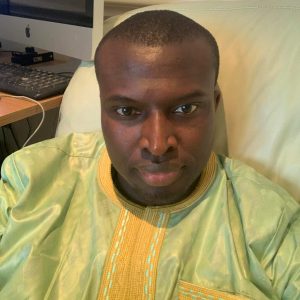
(JollofNews) – The Gambia’s Justice Minister and Attorney General, Baa Tambedou, has abused his powers and authority in refusing to prosecute the former henchmen of the former Gambian Dictator Yahya Jammeh, who were accused by the country’s military of perpetrating human rights crimes and detained. The men further confessed to committing such crimes at the Truth and Reconciliation Commission. The Justice Minister’s decision to release such mass murderers lacks both legal standing and good reasoning.
Under the Gambian laws a person accused of murder is only freed upon an acquittal by a competent court or Presidential prerogative of mercy, but latter is only exercisable upon the conviction and sentenced of the pardoned! The Minister of Justice is neither a court nor a President. He is only a Minister, and to give that a bit of colour, an adviser to the President.
As such the Minister does not have powers to acquit anyone or grant pardon or grant what seems like an amnesty to the Jungulers, to walk free in our societies with victims of their horrendous atrocities. If the Minister ought to have any such powers, it would have been in the TRRC Statute, which is the TRRC Act of 2017 masterminded and passed into law by the same Minister. This is the statutory legislation that established the Truth, Reconciliation and Reparation Commission and further set out the parameters of their mandate.
Under that Act at Section 15, the Act sets out the powers of the commission among which include powers to summon witnesses, powers to interview, powers to request evidence, powers to request police escorts, etc. As well as powers to recommend amnesty. It is a power to recommend Amnesty, but not to grant it. There is a subtle nuance between the two that ought to be appreciated.
At Section 19 of the Act further spells out the Commission’s powers with regards to the issue of Amnesty. I will reproduce that Section here for clarity:
“19. Amnesty
(1) The Commission may recommend Amnesty under the terms and conditions established by the Commission upon application by a person making full disclosures of their involvement in human rights violations or abuses and expressing remorse for their acts or conduct .
(2) Where the Commission has refused an application for amnesty, it shall as soon as reasonably practicable give reasons for its refusal in writing to the applicant and to any other person who in relation to the offence is a victim.
(3) Amnesty shall not apply to acts, which form part of a crime against humanity”

It is clear from that Section that the TRRC Commission is not mandated to grant Amnesty, but has the discretion to recommend such, if and when it is applied for. However, the statute prevents the Commission from recommending such for those who commit “acts, which form part of a crime against humanity”. Unfortunately, the interpretations section of the Act failed or eschewed itself from providing the definition of what ought to constitute crimes against humanity.
Thus compelling us look somewhere else. Thankfully, the Rome Statute of 1998, an international legislation that gave birth to the International Criminal Court (ICC) – which The Gambia is a signatory to – provides an indispensable assistance to that definition. Under Article 7 of The Rome Statute, it is listed number of acts, which is defined to constitute Crimes Against Humanity. For clarity the Rome Statute defined the following acts as constituting Crimes Against Humanity:
“Article 7: Crimes against humanity
1. For the purpose of this Statute, “crime against humanity” means any of the following acts when committed as part of a widespread or systematic attack directed against any civilian population, with knowledge of the attack:
(a) Murder;
(b) Extermination;
(c) Enslavement;
(d) Deportation or forcible transfer of population;
(e) Imprisonment or other severe deprivation of physical liberty in violation of fundamental rules of international law;
(f) Torture;
(g) Rape, sexual slavery, enforced prostitution, forced pregnancy, enforced sterilization, or any other form of sexual violence of comparable gravity;
(h) Persecution against any identifiable group or collectivity on political, racial, national, ethnic, cultural, religious, gender as defined in paragraph 3, or other grounds that are universally recognized as impermissible under international law, in connection with any act referred to in this paragraph or any crime within the jurisdiction of the Court;
(i) Enforced disappearance of persons”
Thus the TRRC Act 2017 makes it abundantly obvious that if any person engaged in an act, which forms part of crimes against humanity, Amnesty should not be considered for such a person. From the definition of the Rome Statute: murder, torture, rape, and enforced disappearances amounted to crimes against humanity. These are the very acts the Jungulers have confessed to perpetrating against unarmed civilians. Their acts were further systematic, for it is sanction by the head of state at the time and part of their modus operandi.
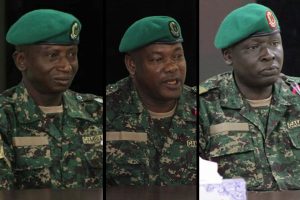 From the above it is reasonable to deduct that, the Minister has no statutory power to grant amnesty or release the Jungulers. In fact, if anything, his legislation that he gave birth to into being, which the statute of TRRC, prohibits him from granting amnesty to the Jungulers, due to perpetration of crimes against humanity.
From the above it is reasonable to deduct that, the Minister has no statutory power to grant amnesty or release the Jungulers. In fact, if anything, his legislation that he gave birth to into being, which the statute of TRRC, prohibits him from granting amnesty to the Jungulers, due to perpetration of crimes against humanity.
The Minister however, has one predisposed discretion, which seems to be the power he has exercised, which I am inclined to describe as abused by the Minister to justify his decision to release the Jungulers. This is his constitutional discretion to dictate, who gets to be prosecuted by the Director of Public Prosecutions. This is the lamentable provision provided under Section 88 of the constitution of The Gambia 1997. This requires the approval of the Minister for any decision to prosecute or discontinue prosecution.
However, an exercise of that discretion ought to align with good reasoning! It would otherwise be improper and yield to travesty if abused. It is along that line one deducts the Justice Minister decision not to prosecute. Otherwise, it makes little sense that the Minister would waste Parliament’s time in passing the TRRC Act, which amnesty to Jungulers for the Minister to then turn around and refuse to prosecute, when evidence is proven of crimes against humanity being committed.
It is to be deducted that the reasons presented by the Minister for his decision lacks logic or cogency, being that the Jungulers have been cooperative and truthful to the TRRC commission. This is because under our legal traditions, it is not the Minister who determine what benefits or discounts of sentence ought to be given to an accused or convict for their cooperation and assistance to prosecution. That is a decision of a judge of a competent court. The prosecution can recommend lenient sentence to the Judge, due to that persons cooperation and assistance but not determine that sentence or pass it on the accused. Only the Judge in his sentencing has that discretion. Thus the Minister’s justification is an admission of usurpation of powers not falling within his jurisdiction. Secondly, the TRRC statute specifically excludes amnesty for acts of crimes against humanity.
Thus the Minister of Justice is decision to refuse to prosecute the Jungulers is wrong and unreasonable. He may be exercising his powers to refuse prosecution but he is doing it inappropriately, which could be deemed to have had the blessings of drafters of our constitution and the Gambian public that voted the same.
The only alternative, to look on the brighter side of things, is that the victims and their loved ones still have the option of private prosecutions, which is the least desirable option in the circumstances, for they will be putting up a fight against professional killers and assassins, who unrestrained in the same small Gambian communities with them. The other alternative would be a Judicial Review challenge to the Supreme Court on the grounds of abuse of constitutional discretion by the Minister!
To be continued…….

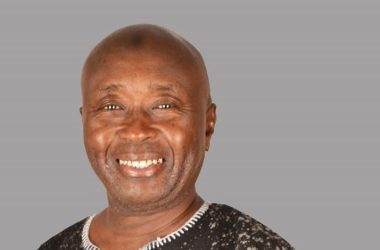
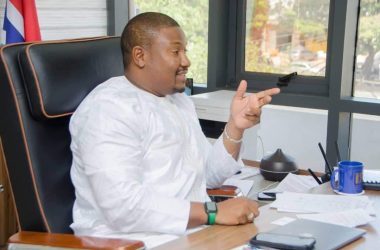
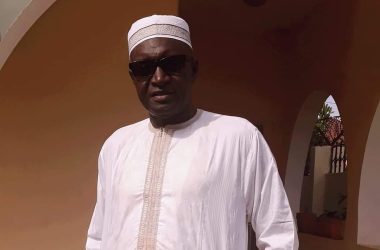

This calculated political move to appease and entice APRC members into the Barrow’s camp is disrespectful and insensitive. Someone killed or admitted to killing, conspired and participated in the murder of no less than 48 people, and he is released.
That is callous. It is barbaric and frankly dumb.
Walahi these men who makes these decisions are brain dead. Just makes no sense anyway you look at it.
What’s next. A full presidential pardon for Yahya Jammeh and a home return of the Killer of Kanilai.
You guys make me sick.
Sister Sarr, that one is certainly out of question; Adama Barrow don’t have the gut to even try that; can bet my last butut on that happening is equal to nil; decent Gambians are certainly waiting for that day if it’ll ever happen; Insha Allah….
@Bajaw.
You know exactly what will happen when Yahya Jammeh returns to Gambia. All these “men” will hide under their wives bed or flee to Dakar. All our brave writers will suddenly become deaf and dumb.
Just brace yourself for the inevitable, our worst nightmare is about to become a reality.
God Help Us
Nope, sister Sarr, Devil yaya doesn’t have the killer machinery behind it anymore; the equation have shifted since its ousting; yaya Jammeh in particular will be hunted until killed in any amnesty if it sets its filthy feet in the Gambia; I’m certain of this; if not, history will proof that, if it ever happens…
Bajaw, we chose TRUTH, RECONCILIATION and REPARATIONS (TRRC) as a way to address the 22 years of Jammeh’s brutality. I know it is difficult to even contemplate granting amnesty to Jammeh, but reconciliation does also mean that ALL perpetrators, including the Chief Perpetrator himself, be included in whatever considerations are contained in the TRR process or approach.
The important thing, in my view, is that the granting of amnesty must not be unilaterally decided by the administration, as seemed to be the case here. Amnesty should only be granted in consultation with, and the consent of, the victims or their next of kin (for those who are no longer here). And that is only when ALL other requirements are met at the TRRC.
The pain of the past 22 years, especially for victims of torture and other dehumanizing acts/actions and families of the dead, will take a long time to heal, if it heals at all, but how the nation heals and ensures that the past is put behind us for good and does not define the future, will depend entirely on how we address the wrongs of the last regime.
And I, personally, think that the TRUTH, RECONCILIATION and REPARATIONS approach is the best option to achieve a lasting solution to this national tragedy.
There is no easy way out here and even long prison terms for perpetrators or even executions may seem like satisfying the need for justice, but neither would guarantee the dissipation of the pain of victims or a successful national healing process.
Openness about a crime, acceptance of guilt and/or culpability, seeking forgiveness and the granting of forgiveness, on the other hand, are proven elements in a healing process, and being practising Muslims and Christians (religions that embrace forgiveness), Gambians can forgive one another because we know the value of forgiveness.
Difficult as it may be, this is the best option available to us and I pray that Allah (SWT) Broaden our chests and hearts to be able to sincerely forgive those that wronged us for 22 long years. May Allah (SWT) Make this difficult task easy for us, as a nation. Aamin.
I couldn’t agree with you more Bax. There is a reason why the government choses TRRC over prosecution. We must as Gambians put aside our emotions and see the broader sense of uniting ourselves as a society.
Bax, (Ameen Allah to your prayers) we’re certainly on the same page in your above statements…
As already on records here before, I’ve always reiterated that if the kanilai Evildom criminal perpetrators accept admittance to misdeeds, crimes & murders committed, show & exhibit genuine remorse & beg for forgiveness for our collective predicaments caused, that’s the only way to ‘salvation here on earth’ as between humans…
If the kanilai Evildom yaya Devil is to come on its own accord & other criminal accomplices to face the TRRC, admit to the heinous crimes it presided over during our Dark-Age period, show genuine remorse & beg for forgiveness from those direct victims who are still alive & family, the family members & love ones of those killed & others who died from the effects of the tortures, as well as forgiveness from the whole of the Gambia & subregions, as we’re all victims holistically as a nation & community; then & only then, can we be able to start actual mourning for some sort of a closure, while moving onto the next phases of healing & realistic reconciliation journeys…
The hopeless politicians will not be let to toy about with the heinous crimes committed, granting so-called amnesty just for playing pathetic politics for their selfish political egos; this will never be acceptable; if not, let them try just that & see (find out) what’s in store next; it’s either TRUTHFUL Reconciliation or justice by all means necessary, in anyways possible at all costs…
Insha Allah…
… the AG is a diasppointment; he is totally inept at every level.
I wonder if anyone has any idea what he is thinking. Perhaps Barrow and the Chief Justice do. I saw this coming when he admitted this in the Point <Gambia in dilemma to try junglers on May 9, 2019).
Are they trying to lure Yahya and many other perpetrators to appear before the TRRC?
Surely if we are serious about never again, some perpetrators have to be punished for their crimes so that other can be deterred from walking the same road. In my books this has nothing to do with religion.
The most serious and heinous crimes ever perpetrated against our innocent people were committed at the aftermath of the 1981 Kukoi rebellion.
The invading Senegalese forces arrested, maimed, raped, robbed and killed hundreds of our innocent people only to defend one person, Sir Dawda Jawara and his PPP.
The rebellion was quelled in less than a week, but the genocide against NCP supporters and other opposition personalities against the government continued for over 2 bloody years.
Please listen to the QTV investigative report on the AFTERMATH of the 1981 rebellion.!!
You shed tears and demand justice. The present TRRC should serve that purpose. The most gruesome episode whose perpetrators ought to be tried.
It cannot be disguised and the present USELESS, CONFLICTED and CORRUPT TRRC should be squashed off to give way to an institution that will investigate the heinous and bloody atrocities at the aftermath of the 1981 rebellion.
Nothing will stop us from claiming that right to receiving justice as direct or indirect victims of that barbarism.
Babu Soli, which QTV documentary did you watch? I watched one on YouTube, but there is no mention of genocide against anyone; certainly not a two year campaign of genocide against NCP Members. Aren’t you letting your imagination run wild?
I listened to historian Hassoum Ceesay, narrating the events of 1981 and giving contexts to the whole unfortunate event. No mention of genocide; only detention centres.
I listened to Ebou Waggeh, narrating his experience on that fateful day. He explained how a career criminal, who was serving time in prison at the time, and who used to live on the street, turned up in their street with a gun and held the entire street hostage. Who knows how many people that guy may have killed?
I listened to him (Mr Waggeh) narrating how the mortuary (death house) was so overwhelmed that corpses were left lying on the ground outside.
I listened to him saying there were dead bodies all over the city, with some even beginning to rot.
I listened to BB Darboe, ambassador to Senegal at the time, corroborating the story of dead bodies, as he narrated his experience and the conversation he heard on the “radio” between the Senegalese Ambassador and Military Authorities in Senegal, as they collected intelligence on the situation in order to develop an intervention strategy.
I listened to him (BB Darboe) saying that the Senegalese Ambassador was reporting dead bodies all over the place and saying that the rebels were drunk.
Babu, like I said before, many of the deaths had already occurred before the Senegalese even set foot in the Gambia. You cannot rewrite that aspect of our history, however hard you try to do.
Bax,
You are telling me about what happened during the bloody encounters between the rebels, the security forces( the loyalists) and the invading Senegalese mercenary forces. That was a three-day encounter which saw the fleeing of Kukoi, the subsequent quelling of the rebellion and the beginning of the genocide.
What happened when Jawara returned?
Don’t tell me that you weren’t witness to the brutal aftermath of mass arrests, illegal detentions in make-shift detention camps, rapes, robberies, tortures, killings….
BB Darboe would never divulge beyond what occured during the fighting because he facilitated the negotiations between the two governments that eased the Senegalese bloody and criminal intervention. One day he will answer to his criminal dealings.
Say what you may, Bax, we see hypocrisy in the present TRRC while minimising our pains and sorrow for 38 years.
We have no regards, absolutely, for your TRRC and have already set our group to address the 1981 episode.
No need to give us moral or legal advice, Bax. We are seeking justice. Don’t we deserve a hearing?